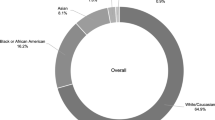Abstract
Zero-tolerance suspensions are exclusionary practices that disrupt and deny students access to structured routines, academic instruction, and school-provided meals. Throughout the United States, statistical comparisons in zero-tolerance suspensions illustrate harsh racial disproportionalities, particularly for adolescent African American males. Inequities in disciplinary practices place adolescent African American males at higher risk for dropping out of high school, retention, and incarceration. Recent literature highlights the pathway of restorative justice as a tool to decrease inequities in zero-tolerance school suspensions. This case study applies the theoretical framework of Critical Race Theory (CRT) to examine this phenomenon by presenting the story of a 17-year-old African American male and his lived experience of a zero-tolerance school suspension and the social and emotional benefits of counter-storytelling as a restorative justice practice. This paper seeks to contribute to the literature by illustrating the inequities of mandated school suspensions and the observed outcomes when a social worker with experience in CRT and restorative justice intervenes.
Similar content being viewed by others
References
Anyon, Y. (2016). Taking restorative practices school-wide: Insights from three schools in Denver. Denver, CO: Denver School-Based Restorative Practices Partnership.
Augustine, C. H., Engberg, J., Grimm, G. E., Lee, E., Wang, E. L. & Christianson, K. (2018). Can restorative practices improve school climate and curb suspensions? An evaluation of the impact of restorative practices in a mid-sized urban school district. (Report No. RR-2840-DOJ). Retrieved from https://www.rand.org/pubs/research_reports/RR2840.html
Baskarada, S. (2014). Qualitative case study guidelines. The Qualitative Report, 19, 1–18.
Baxter, P., & Jack, S. (2008). Qualitative case study methodology: Study design and implementation for novice researchers. The Qualitative Report, 13(4), 544–559.
Bottiani, H. J., Bradshawm, P. C., & Gregory, A. (2018). Nudging the gap: Introduction to the special issue closing in on discipline disproportionality. School Psychology Review, 47(2), 109–117. https://doi.org/10.17105/SPR-2018-0023.
Chen, G. (2008). Communities, students, schools, and school crime: A confirmatory study of crime in US high schools. Urban Education, 43(3), 301–318. https://doi.org/10.1177/0042085907311791.
DeMatthews, D. (2016). Effective leadership is not enough: Critical approaches to closing the racial discipline gap. The Clearing House, 89(1), 7–13. https://doi.org/10.1080/00098655.2015.1121120.
Felitti, V., Anda, R., Nordenberg, D., Williamson, D., Spitz, A., Edwards, V., et al. (1998). Relationship of childhood abuse and household dysfunction to many of the leading causes of death in adults: The adverse childhood experiences (ACE) study. American Journal of Preventive Medicine, 14(4), 245–258. https://doi.org/10.1016/S0749-37979800017-8.
Fronius, T., Darling-Hammond, S., Persson, H., Guckengurg, S., Hurley, N. & Petrosino, A. (2019). Restorative justice in U.S. schools: An updated research review. San Francisco, CA: WestEd Justice and Prevention Research Center. Retrieved from https://files.eric.ed.gov/fulltext/ED595733.pdf
Gregory, A., & Weinstein, S. R. (2008). The discipline gap and African Americans: Defiance or cooperation in the high school classroom. Journal of School Psychology, 46, 455–475. https://doi.org/10.1016/j.jsp.2007.09.001.
Gregory, A., & Fergus, E. (2017). Social and emotional learning and equity in school discipline. The Future of Children, 27(1), 117–136.
Howard, T. C. (2008). Who really cares? The disenfranchisement of African American males in PreK-12 schools: A critical race theory perspective. Teachers College Record, 110(5), 954–985.
Killion, R. (1998). Student discipline methods and resources used by Indiana secondary school administrators. NASSP Bulletin, 82, 44–49. https://doi.org/10.1177/019263659808259609.
Ladson-Billings, G. (1999). Preparing teachers for diverse student populations: A critical race theory perspective. Review of Research in Education, 24(1), 211–247. https://doi.org/10.2307/1167271.
Ladson-Billings, G. (2012). Through a glass darkly: The persistence of race in education research & scholarship. Educational Researcher, 41(4), 115–120. https://doi.org/10.3102/0013189X12440743.
Mallett, C. (2016). The school-to-prison pipeline: A critical review of the punitive paradigm shift. Child and Adolescent Social Work Journal, 33(1), 15–24. https://doi.org/10.1007/s10560-015-0397-1.
Mitchell, S. D. (2014). Zero tolerance policies: Criminalizing childhood and disenfranchising the next generation of citizens. University of Missouri School of Law Scholarship Repository, 92(2), 272–323.
National Association of Social Workers. (2017). Code of ethics of the National Association of Social Workers. Washington, DC: NASW Press. Retrieved from https://socialworkers.org/About/Ethics/Code-of-Ethics.
National Association of Social Workers. (2015). Standards and Indicators for Cultural Competence in Social Work Practice. Washington, DC: NASW Press.
Payne, A. A., & Welch, K. (2015). Restorative justice in schools: The influence of race on restorative discipline. Youth and Society, 47(4), 539–564. https://doi.org/10.1177/0044118X124.
Simson, D. (2014). Exclusion, punishment, racism, and our schools: Critical race theory perspective on school discipline. UCLA Law Review, 61(2), 506–563.
Skiba, R., Horner, R., Chung, C., Rausch, M., May, S., & Tobin, T. (2011). Race is not neutral: A national investigation of African American and Latino disproportionality in school discipline. School Psychology Review, 40(1), 85–107.
Smith, C. L., Garnett, R. B., Herbet, A., Grudev, N., Voge, J., Keefner, W., et al. (2018). The hand of professional school counseling meets the glove of restorative practices: A call to the profession. Professional School Counseling, 21(1), 1–10. https://doi.org/10.1177/2156759X18761899.
Turney, K. (2018). Adverse childhood experiences among children of incarcerated parents. Children and Youth Services Review, 89, 218–225. https://doi.org/10.1016/j.childyouth.2018.04.033.
U.S. Government Accountability Office. (2018, March). Discipline disparities for black students, boys, and students with disabilities no child Left behind act. (Publication No. GAO-18-258). Retrieved from https://www.gao.gov/products/gao-18-258
Author information
Authors and Affiliations
Corresponding author
Ethics declarations
Conflict of interest
The author declares that the author has no conflict of interest.
Additional information
Publisher's Note
Springer Nature remains neutral with regard to jurisdictional claims in published maps and institutional affiliations.
Rights and permissions
About this article
Cite this article
Gwathney, A.N. Offsetting Racial Divides: Adolescent African American Males & Restorative Justice Practices. Clin Soc Work J 49, 346–355 (2021). https://doi.org/10.1007/s10615-021-00794-z
Accepted:
Published:
Issue Date:
DOI: https://doi.org/10.1007/s10615-021-00794-z




